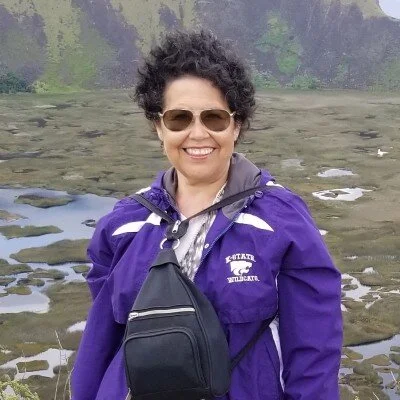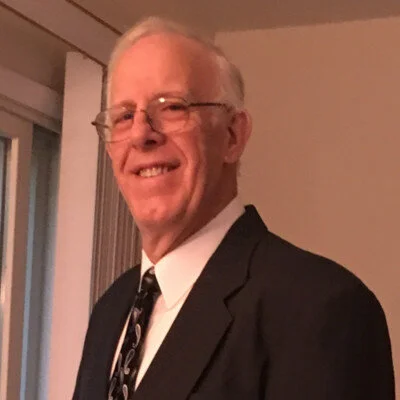Ep 16: Solidarity and encounter through dictatorship with Sam Stanton and Cecilia Espinoza
How do we overcome indifference? This week we invite Sam Stanton and Cecilia Espinoza, two former Maryknoll Lay Missioners as they describe their work providing social and family services in the community of Nirivilo, near Linares, Chile, during the dictatorship of Augusto Pinochet. They share their experiences of cross-cultural encounter through international exchange programs and mission trips and share what they have learned when working across cultural difference. Sam and Cecilia also share their love for Chilean folk and protest musicians and the role of music in inspiring social change. Drew and Roger share a new 80s/90s trivia questions and Roger shares an inspiring story of kindness from a former Common Good Hour guest.
Key Takeaways
Indifference - or the inability to authentically engage and enter into the suffering of others - is an enormous obstacle to the work of building the common good.
Encounter requires that we never do for, but rather work alongside and with, communities who are experiencing disadvantage. When working in multicultural settings, consider adopting an open disposition focused on learning from others rather than coming with an agenda of one’s own.
Fear and self-centeredness can lead to indifference. Social service organizations can develop programs an interventions that help people see themselves for who they truly are. With greater self-knowledge comes the ability to live in solidarity with others.
Overcoming indifference also requires a transformation of systems marked by economic inequality, racism, and other forms of oppression. This can be done through community and working in solidarity with others.
Resources and Links
In this episode, Drew discusses an “encounter” scene from the Motorcycle Diaries where Che crosses the Amazon river to spend his birthday with the community of individuals living with leprosy on the opposite side of the river.
Sam shares his love for Illapu, a Chilean folk group. Below is the song “Vuelvo Para Vivir”, which tells the story of the band’s return from exile after the end of the Chilean dictatorship.
Cecilia shares her love for Joan Baez, featured below with Argentine musician Mercedes Sosa performing “Gracias a La Vida”, originally written by Chilean folk artist Violeta Parra.
Our Guests
Cecilia Espinoza grew up in a working-class neighborhood in the city of Santiago. She studied Occupational Therapy at the University of Chile in Santiago and obtained a Master's Degree in Family Counseling from Iona College in New Rochelle, New York. Professionally, Cecilia was the Director of the Department of Occupational Therapy of the Geriatric Hospital of Santiago, when she met her husband, Sam Stanton.
In August 1985, Cecilia and her family became missioners with Maryknoll Lay Missioners and were sent to serve in a small town called Nirivilo during the dictatorship of Pinochet. They worked with the human rights Bishop Monsignor Carlos Camus. Cecilia created the Liturgy Department for the Diocese of Linares and also served as a Therapist for the Diocesan Family Department. Cecilia also engaged in human rights work, she worked in civic preparation for the Chilean national plebiscite during the military dictatorship.
As Chile had returned to democracy, Cecilia and a doctor friend, together with a group of professionals, created a Comprehensive Health Center for Adolescents, being financially supported by Caritas Chile. The center focused mainly on the psychological and family care of the children of detainees, disappeared and political prisoners of the dictatorship. Eventually this center expanded its care to all adolescents in situations of high medical, psychological and socio-economic risk.
In 1996 Sam Stanton in conjunction with Fr. Don McNeil, CSC from Notre Dame developed what is today called the Chile pre-program, “An experience of rural Chile and an intense Chilean Spanish program”. Later on the Director of International Studies at Marquette joined the effort and began sending students in preparation for the semester of studies in Chile. This program provides a great introduction to the history, geography, culture and language of Chile.
In April 2004, Cecilia and her husband returned to the United States, and Cecilia took over as the administrator and executor of all Immersion and short-term volunteer programs of the Maryknoll Lay Missioners which included the immersions for both universities. Cecilia also became the Coordinator of the alumni program of Maryknoll Lay Missioners. In 2019 Cecilia was contracted by the University of Notre Dame and Marquette University to carry out the educational pre-program of immersion in the culture, history, geography and language of Chile.
Sam Stanton was born and raised in north central Kansas in a small rural town where everything was related to agriculture. He attended Kansas State and graduated with a BSW in 1976. During his college years he grew in awareness of social needs and movements, especially the challenges of the Latino community in the area. In the summer of 1975, through the Catholic Student Center at K-State, he participated in a summer work program on the south side of San Antonio, TX, the poorest area of the city under the direction of Fr. Edmundo Rodriguez, the Jesuit pastor of Our Lady of Guadalupe Parish. This was a life changing experience for Sam.
After graduation, Sam worked for the Holy Cross Justice and Peace Center (Notre Dame) in South Bend, IN and coordinated social outreach at Little Flower Catholic Church. The situation of Chile after the violent coup was much on the agenda at Notre Dame given the presence of the Holy Cross Fathers and Brothers in Chile. During his time in South Bend he also took theology classes and in '78 went to Chile as a Holy Cross Associate, his second life changing experience. He lived in a very poor section of the city and taught in Holy Cross schools and coordinated youth and social programs in a Holy Cross parish.
He met a wonderful young woman through the justice movements and married Maria Cecilia Espinoza in '81. In '82 Sam and Cecilia moved to the states and lived and worked in Phoenix, AZ where their three children were born.
In '85 they entered the Maryknoll Lay Missioners and were missioned to rural Chile and lived in a small village where they worked in rural pastoral and development programs. Eventually we moved into the city of Linares where Sam became Director of Catholic Social Services and Rural Development for the Diocese of Linares. The office included advocacy for human rights, especially legal services and accompaniment for the families of the disappeared and detained. They were also involved in the process of Chile's return to democracy in '88.
In '91 Sam was asked to return to the Maryknoll headquarters in Ossining, NY and assume the responsibilities as Director of Maryknoll Lay Missioners. In '96 they returned to Linares, Chile. One of their works upon our return to Chile was the direction of a program of Notre Dame. The program was a two week immersion to rural Chile that preceded a semester of studies for ND students at Catholic University of Chile. That program continues today under the coordination of Cecilia. In '08 Sam was asked to return to Ossining and assume the direction of Maryknoll Lay Missioners again. Sam retired from that position in '18. Sam and Cecilia continue to reside in Ossining, NY.


